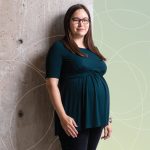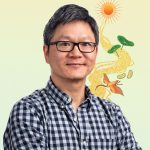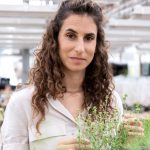Cancer treatments have long been moving toward personalization—finding the right drugs that work for a patient’s unique tumor, based on specific genetic and molecular patterns. Many of these targeted therapies are highly effective but aren’t available for all cancers, including non-small cell lung cancers (NSCLCs) that have an LKB1 genetic mutation. A new study led by Professor Reuben Shaw and collaborators from Northwestern University revealed FDA-approved trametinib and entinostat (which is currently in clinical trials) can be given in tandem to produce fewer and smaller tumors in mice with LKB1-mutated NSCLC. The findings may lead to clinical trials to test the new regimen in humans.
Featured Stories
 Leading with Technology – Salk scientists develop new means of discoveryOur scientists continue to push technological limits to—among other things—store more excess atmospheric carbon in deeper plant roots, study pancreatic cancer more accurately, follow cellular activity in real time more clearly, and track all kinds of motion more easily.
Leading with Technology – Salk scientists develop new means of discoveryOur scientists continue to push technological limits to—among other things—store more excess atmospheric carbon in deeper plant roots, study pancreatic cancer more accurately, follow cellular activity in real time more clearly, and track all kinds of motion more easily. Dannielle Engle—Putting patients firstEngle, an assistant professor, has a deeply personal connection to pancreatic cancer that changed her career trajectory and made her want to focus on the disease. Inside Salk sat down with Engle to find out more about her dedication to finding better treatment options.
Dannielle Engle—Putting patients firstEngle, an assistant professor, has a deeply personal connection to pancreatic cancer that changed her career trajectory and made her want to focus on the disease. Inside Salk sat down with Engle to find out more about her dedication to finding better treatment options.
 Weiwei Fan—Life is energyFan, a staff scientist in Professor Ronald Evans’ lab, studies mitochondria because he feels drawn to understanding how these energy generators within our cells function and the natural variations that exist between individuals.
Weiwei Fan—Life is energyFan, a staff scientist in Professor Ronald Evans’ lab, studies mitochondria because he feels drawn to understanding how these energy generators within our cells function and the natural variations that exist between individuals. Natanella Illouz-Eliaz—Recipe for a plant biologist: tomatoes, failure, and perseveranceIllouz-Eliaz, a postdoctoral researcher in Professor Joseph Ecker’s lab, grew up in Israel near the border with Lebanon, where high-pitched sirens periodically drove her family into bomb shelters for safety. But her parents insisted that she get the best education possible.
Natanella Illouz-Eliaz—Recipe for a plant biologist: tomatoes, failure, and perseveranceIllouz-Eliaz, a postdoctoral researcher in Professor Joseph Ecker’s lab, grew up in Israel near the border with Lebanon, where high-pitched sirens periodically drove her family into bomb shelters for safety. But her parents insisted that she get the best education possible. Richard Heyman—From Salk to biotech and backHeyman, a scientist and entrepreneur who has founded numerous biotechnology companies, currently serves as vice chair of Salk’s Board of Trustees, but his Salk story actually began when he was a postdoctoral researcher in the lab of Professor Ronald Evans.
Richard Heyman—From Salk to biotech and backHeyman, a scientist and entrepreneur who has founded numerous biotechnology companies, currently serves as vice chair of Salk’s Board of Trustees, but his Salk story actually began when he was a postdoctoral researcher in the lab of Professor Ronald Evans.






















































